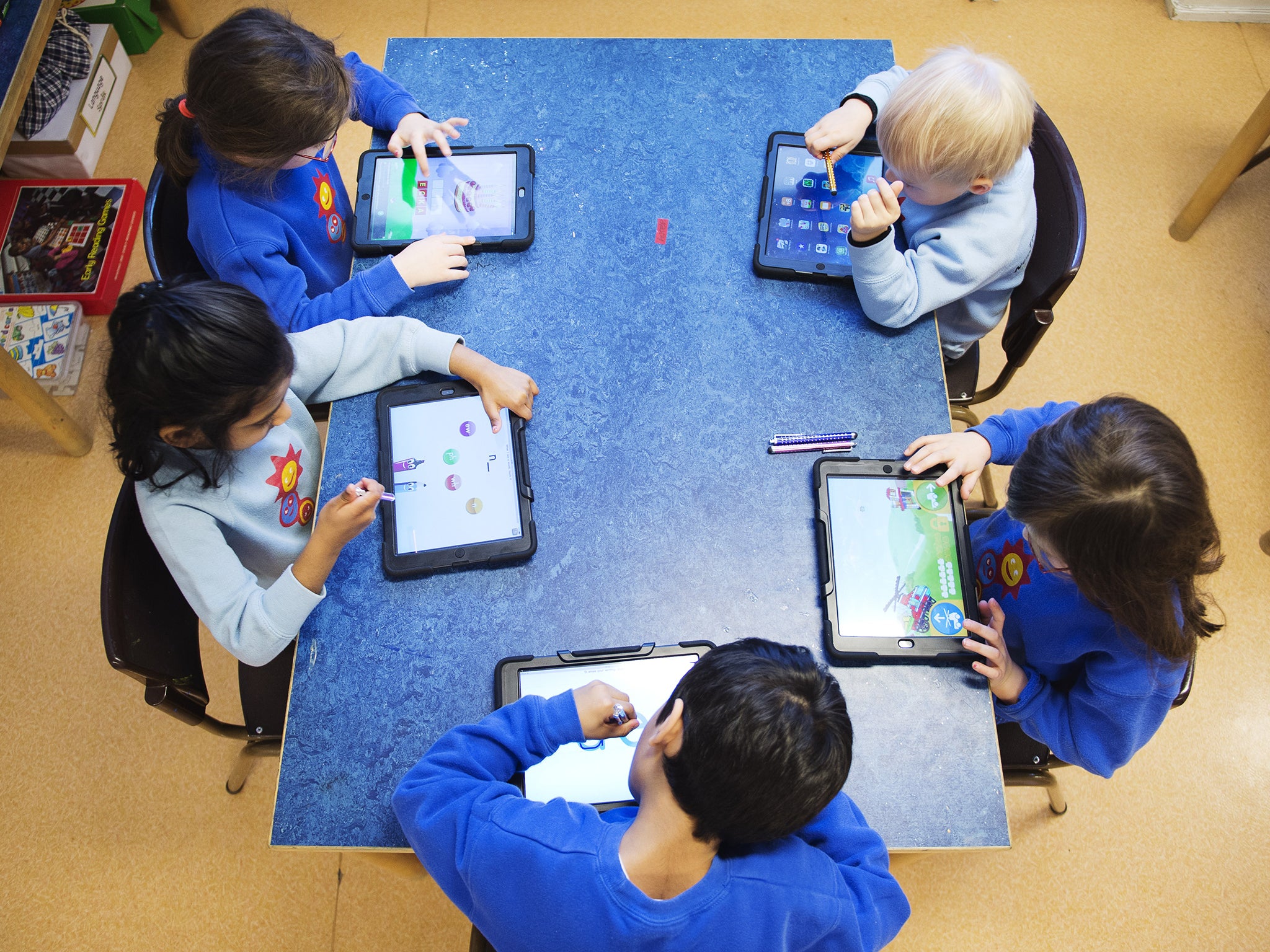Top head says money spent by schools on 'fad' iPads could have funded 8,000 teachers
Russell Hobby says he is 'dubious' about the use of technology as a teaching aid in non-IT lessons

Your support helps us to tell the story
From reproductive rights to climate change to Big Tech, The Independent is on the ground when the story is developing. Whether it's investigating the financials of Elon Musk's pro-Trump PAC or producing our latest documentary, 'The A Word', which shines a light on the American women fighting for reproductive rights, we know how important it is to parse out the facts from the messaging.
At such a critical moment in US history, we need reporters on the ground. Your donation allows us to keep sending journalists to speak to both sides of the story.
The Independent is trusted by Americans across the entire political spectrum. And unlike many other quality news outlets, we choose not to lock Americans out of our reporting and analysis with paywalls. We believe quality journalism should be available to everyone, paid for by those who can afford it.
Your support makes all the difference.Schools should stop wasting money buying iPads and other “shiny gadgets” for pupils and instead hire more teachers, the leader of Britain’s largest headteachers’ organisation says today.
A quarter of a billion pounds a year is being spent on computers in schools, according to the latest figures from Besa, the educational suppliers’ organisation.
This is enough to pay the wages of more than 8,000 teachers or build 40 secondary schools, according to Russell Hobby, general secretary of the National Association of Head Teachers (NAHT).
In a personal blog published today, he asks whether the spending “can ... possibly be justified at a time of austerity”. He adds: “I think we’d be better spending the money on recruiting and training great teachers and sticking them in front of old-fashioned blackboards.”
His comments come as 35,000 people from the world of education are due to descend on the annual Bett Show in London this week – the showpiece for education suppliers such as Google and Microsoft to display their latest educational hardware.
While acknowledging the importance of teaching children to use digital technology, Mr Hobby says he is “dubious” about the use of technology as a teaching aid in non-IT lessons.
“It is early days, of course, but an animated presentation on an electronic whiteboard or a lesson plan on an iPad are not transformative in terms of standards,” he writes. “Nice, perhaps, time-saving, maybe, but remember the cost.”
He says schools “must guard against fads and panaceas”, adding: “Technology has not value in itself, only in relation to the problems it solves.
“We need a reason, a goal, not a glossy brochure or shiny gadget. And preferably not a goal suggested to us by a purveyor of shiny gadgets, but one that already existed before we spoke to them. Too often, technology is a solution in search of a problem.”
His intervention was backed by Louis Coiffait, of NAHT Edge – a new section of the association for aspiring heads – in a separate blog. “Billions of pounds are being made by private investors and companies out of education hardware and software,” he writes, pointing to predictions that by April this year there will be an average of 429 devices in every UK school.
The Education Secretary, Nicky Morgan, is scheduled to make a keynote address on Wednesday at the Bett Show.
Join our commenting forum
Join thought-provoking conversations, follow other Independent readers and see their replies
Comments